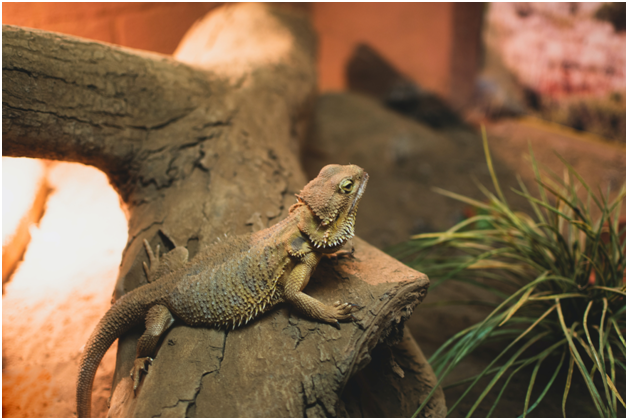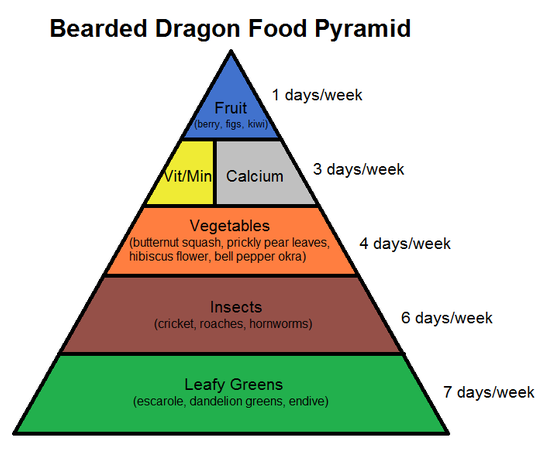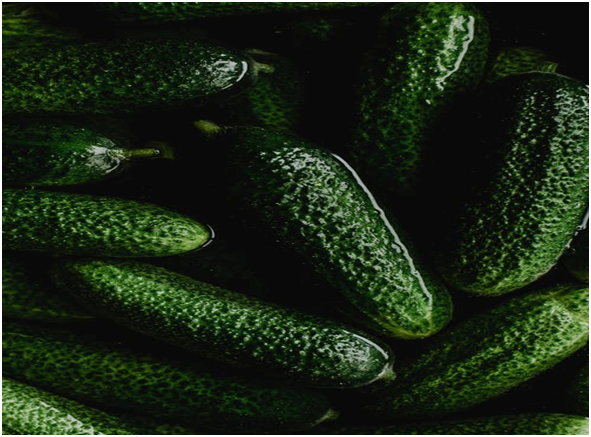Bearded Dragons: What to Feed Your Bearded Pet

Bearded dragons are undoubtedly the best whether you are looking for a pet for you or your child. Do you love dinosaurs? If you do, then you will love these amazing creatures the more.
I know we only see dinosaurs in documentaries and cartoons, but these are the closest we’ll ever get to those extinct creatures.
Interesting huh?
Bearded dragons are gentle and docile. Caring for them is also relatively easy. Like all other beautiful pets we keep at home, all you have to focus on is their diet and offer them attention.
Also known as ‘beardies’ bearded dragons are great to cuddle while watching your favorite TV show or movie.
Get enough snacks for you and them, and you are set for a movie marathon! Speaking of snacks, what’s acceptable and what’s not for a bearded dragon to eat?
The Bearded Dragon Diet

They also feed on sweet potatoes and leafy greens such as spinach, kale, and parsley.
You can feed some fruits to bearded dragons, but not all of them are allowed. Approved fruits and vegetables only make up 20% of their diets. Insects must supplement the rest.
Recently, there have been more inventions made on cucumbers being added to a bearded dragon’s diet.
Can bearded dragons eat cucumbers? Here’s some information on that.
Beardies and Cucumbers

Pros and Cons of Feeding Cucumbers to Bearded Dragons
Cucumbers have acceptable positive effects on them. They include:
- A high water percentage. Cucumbers have 96% water, which makes them a great source of hydration. Bearded dragons get most of their water from the foods they consume.
- Source of fibre. This is a good thing since fibre prevents constipation, and improves digestion.
- Cucumbers contain vitamin C. This helps with your dragon’s immune system, improves vision, aids in reproduction, and helps your dragon grow consistently and properly.
- They contain vitamin K, which is responsible for the regulation of blood clotting.
- Cucumbers are also packed with potassium. Potassium aids the functioning of muscles alleviates kidney problems and lowers water retention.
- Manganese is another vitamin found in cucumbers, which aids metabolism and prevents inflammation.
- In cucumbers, bearded dragons can get Magnesium, which promotes brain and muscle health.
- Cucumbers do not contain a lot of acids. They are therefore easy on your dragon’s tummy.
- Antioxidants are very beneficial to your beardies, and fortunately, they can be found in cucumbers. They help in preventing diseases and strengthening the immune system.
These are incredible benefits and I am sure you would want your dragon to obtain all these. However, there are certain aspects of cucumbers that make them not-so-good for your bearded pets.
The cons are:
- Cucumbers contain too much water.
Bearded dragons are categorized under desert creatures. They are naturally in a state of dehydration. Therefore, they do not require as much water as cucumbers carry.
Overhydration in bearded dragons can cause bouts of diarrhea. This is something you should watch out for. In case it happens, take some time before you can start offering them again.
- The lack of calcium compared to phosphorus in cucumbers might lead to dragons getting the metabolic bone disease. They require a significant amount of calcium in their diets. You should research other vegetables and foods that are more calcium packed.
Once you begin feeding your dragon cucumbers, make sure you do not introduce any other new foods so that you can monitor how they react.
Unfortunately, beardies cannot feed on every part of a cucumber. Peel cucumbers before you can offer them to your pet.
The peels can cause blockages in their digestive tract. We wouldn’t want that to happen.
Best Way to Feed Cucumbers to Bearded Dragons
When you visit your local grocery store, go for the freshest cucumber you can find. The fresher, the better. When you get back home, do the following:
- Wash the cucumbers thoroughly. Washing gets rid of any pesticides or chemicals that the farmer might have used.
- As stated above, you mustn’t feed the peel to these pets. It is also important to mention that you should also avoid cucumber leaves. Leaves tend to accumulate chemicals, and if you aren’t sure if they are organic, they may affect your dragon.
You should ensure you have peeled cucumbers properly after getting rid of the leaves.
- 3. Cut the cucumber halfway, lengthwise to take out all the seeds. Seeds can cause choking.
I’m sure you love your bearded dragon to bits. Make sure you chop the cucumber flesh into small bits, like a 1-year-old’s snack.
You can combine cucumber bits with other vegetables and fruits to make the meal more colourful and exciting.
How Often Can You Feed them Cucumbers?
Undoubtedly, cucumbers are beneficial to these wonderful pets. The only thing to be careful about is how often you give them cucumber bits.
There are also mini cucumbers that are more nutritious than regular ones. If you find them while shopping, they serve the purpose better.
To prevent any health issues that might result from them eating cucumbers, infuse them into other vegetables and snacks every other week. Once in two weeks is totally fine.
If you have any queries about what to add to your pet’s diet, be sure to visit a veterinary doctor.
It is safe to feed cucumbers to your loved bearded dragon. What you can be sure of is that cucumbers will not make your dragons fat. They are not high in carbs. They may not be very high in nutrition, but an occasional snack won’t hurt them.
If you haven’t introduced your beardies to washed, peeled, chopped cucumber bits, it is about time you do. Watch how much they enjoy this great snack as you cuddle and enjoy your favourite shows.
Post a comment